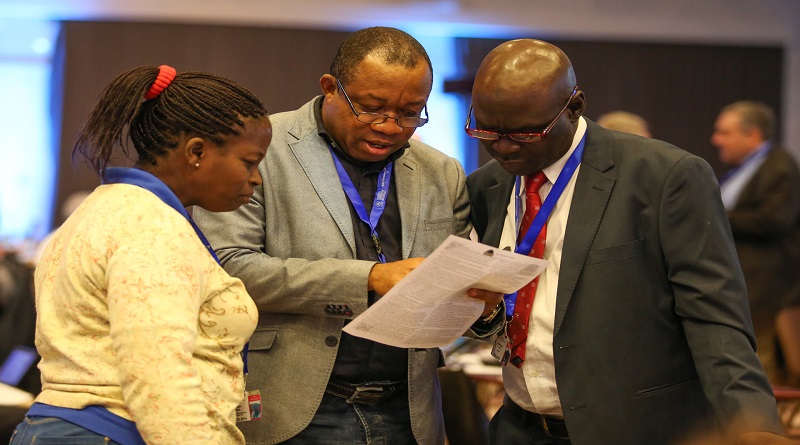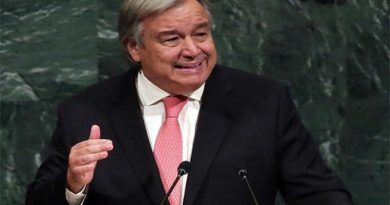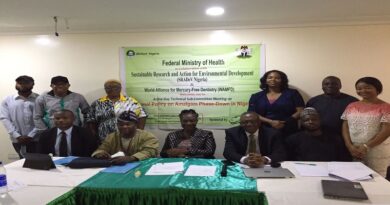Togo ratifies Minamata Convention, others to join soon
With the ratification of Minamata Convention on mercury by the governments of Togo and Liechtenstein last week bringing the number of future Parties to 38, hope is bright that the 50 countries mark requirement to ratify the Convention before it enter into force will be hit on or by September when the first Conference of Parties (COP1) is slated to take place in Geneva, Switzerland.
Ecogreennews gathered that at the moment, Burkina Faso, Ghana among other African countries are preparing to ratify the Convention while progress has been recorded by European Union countries such as Denmark, France, Germany, Luxembourg and Sweden who are likely to ratify it by May this year.
Reacting to the development on Monday, Executive Director, Sustainable Research and Action for Environmental Development (SRADev-Nigeria), Leslie Adogame, said ratification of the Minamata Convention by countries that have signed it is steadily and hastily gaining pace from 2016 into 2017 with the present 38 countries.
“Many other countries are lined up to hit the 50 mark soon. It is strongly hoped that by September this year, the global agreement to restrict use of mercury is on track. At the moment, Burkina Faso, Ghana among other African countries are preparing to ratify according to the Minamata interim secretariat,” he said.
Adogame, whose organisation serves as the focal point and coordinator for other Non-Governmental Organisations (NGOs) with regards to the Convention in Nigeria, regrets that while many countries are fast tracking to join the first 50 countries, Nigeria ratification appears “stagnant and strategically slowed down”.
“Stakeholders are not well informed of what exactly delays the process and there are fears that the relocation of the present minister of environment to the United Nations job soon may well further delay the process, if not stall it entirely. If Nigeria fails to ratify by September, it would be embarrassing as a leading African negotiator not to be represented at the start of the global implementation COP1 events,” he explained.
He however, added that NGOs are key partners and stakeholders according to the Convention negotiation and not as observers.
Deputy Director, Chemical Management and Pollution Control department, Federal Ministry of Environment, Dr. Idris Goji, recently explained that the change of government in 2015 in Nigeria affected the ratification process of the Convention.
He added the effort is been made to ensure that the Convention is ratify before the minister of environment assumes her as Deputy Secretary-General of United Nations in March.
The Minamata Convention on Mercury is a global treaty to protect human health and the environment from the adverse effects of mercury.




